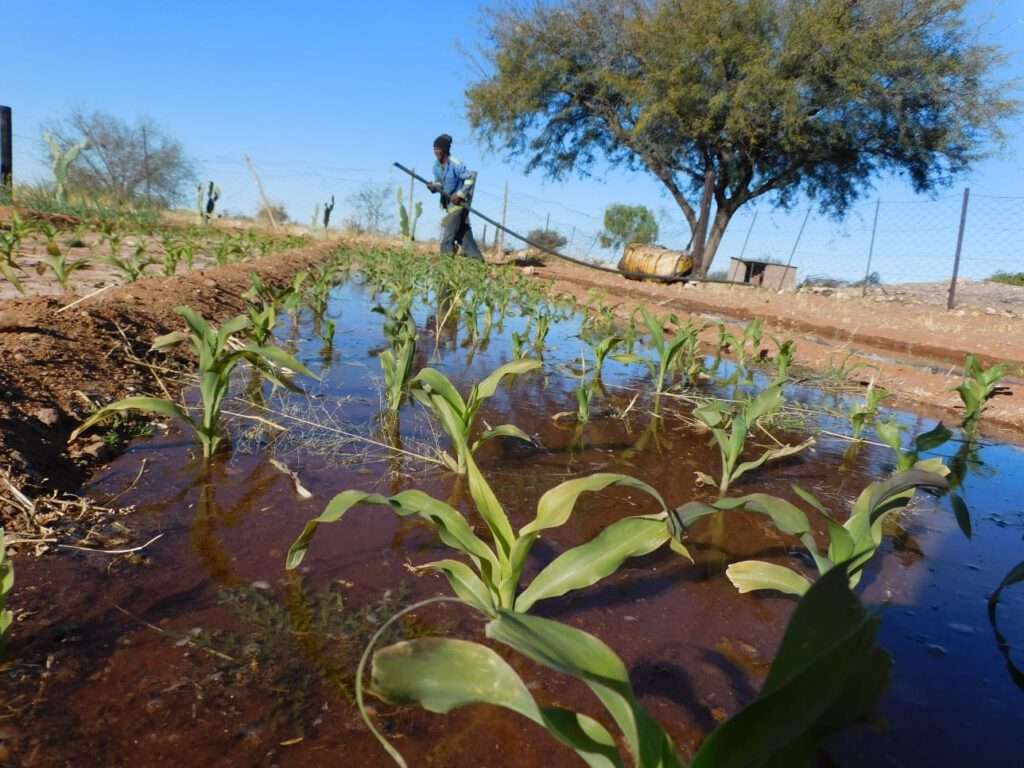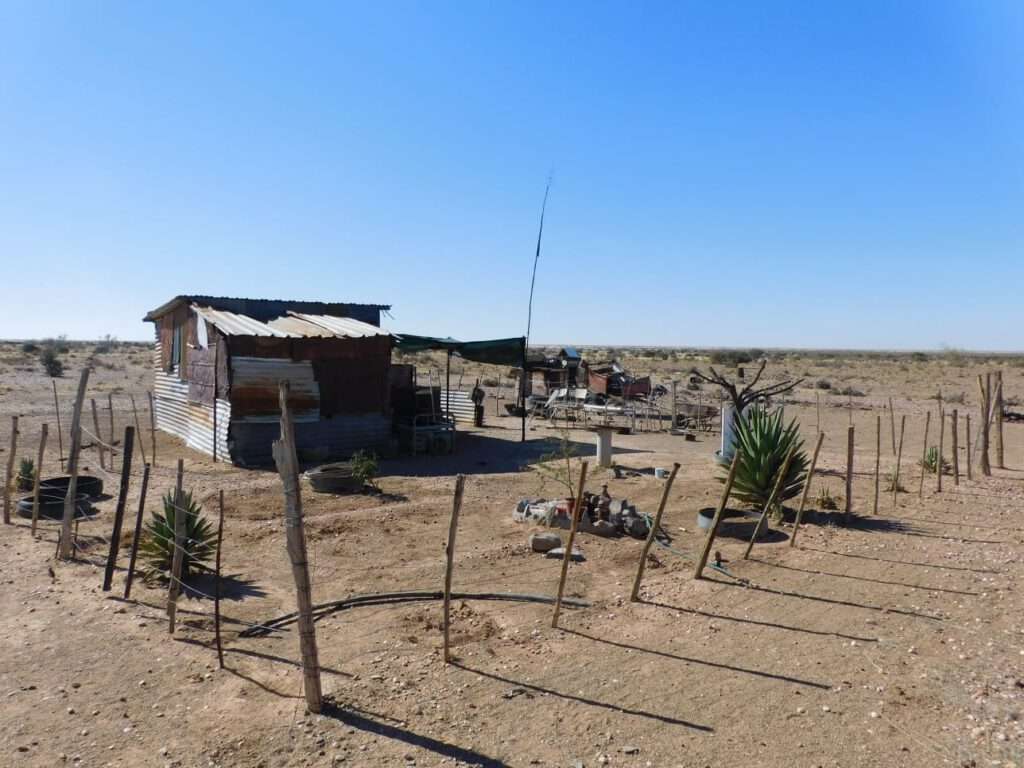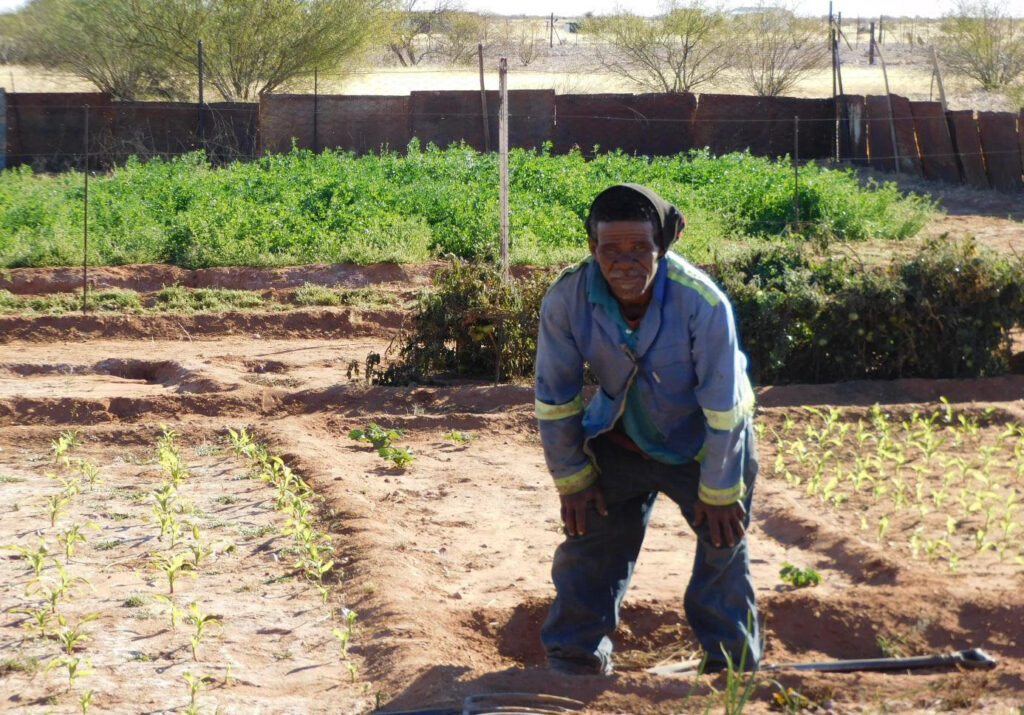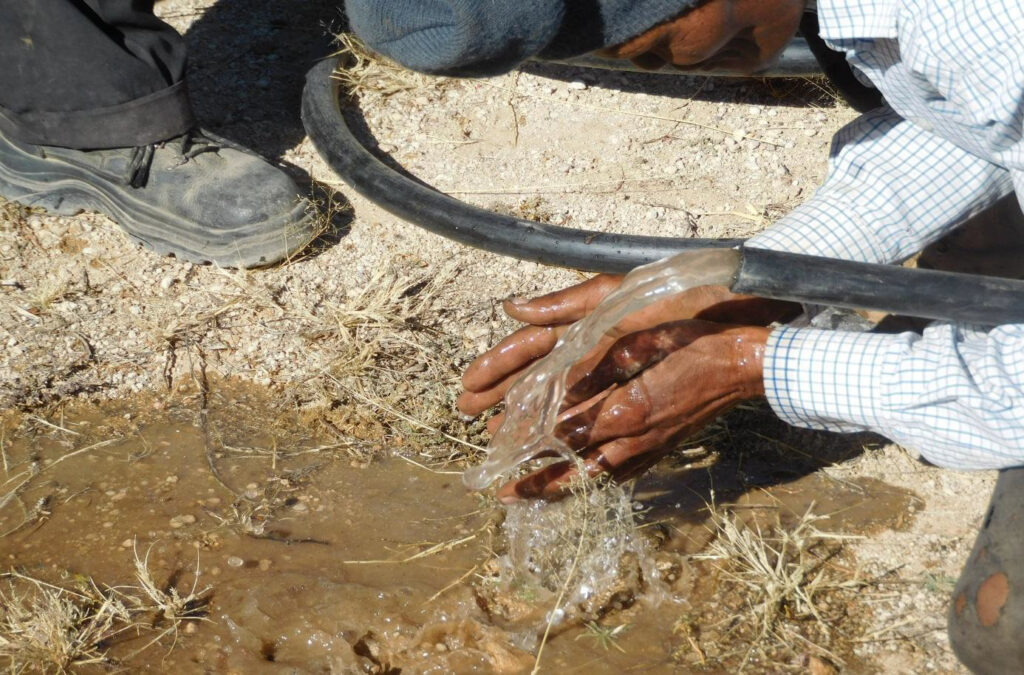The CommonWaters Namseb Project
Commonwater Namseb is our partner organization in Namibia, responsible for the operational implementation of CommonWaters‘ goals. Both responsible bodies commonwaters e.V. and CommonWater Namseb are legally independent but are to be regarded as a unit like brother and sister via cooperation agreement. CommonWaters Namseb is an independent non-profit organization (NGO), which is recognized in Namibia as a non-profit and tax-exempt nonprofit.
Overview
The CommonWaters Namseb organisation is working on the rehabilitation of water supply in the arid Hardap region in southern Namibia. We operate from Farm Namseb near the town of Maltahöhe.
Many people in the area suffer from lack of water mainly due to severe poverty and the resulting lack of infrastructure which makes it difficult to pump enough water from the ground for themselves and their livestock. Maintenance of old windpumps and diesel engines poses a big financial and technical problem.
Through the rehabilitation of water points by a technology change towards clean and efficient solar pumps and infrastructure the living conditions of the local people can be improved enormously.
Where there is a possibility to plant fruit and vegetables for own consumption and for sale as well as fodder plants for livestock there is a new perspective on life. The availablility of water immediatly improves the hygiene and health of the affected people. It certainly slows the movement of people from rural to urban areas as there is hope for improvement on the land.
Water points also benefit the wildlife populations in the communal and resettlement areas as the wild animals get access to water and can drink at night.

Sustainability and responsibility: the Solarcent
During the past 4 months we have rehabilitated 11 boreholes through installation of solar pumps and in some cases some new infrastructure above the ground, eg tanks on stands and pipelines. The local communities actively helped on site with the installation of the pumps.
For future installations we believe it is important to create more awareness for the value of the scarce resource which water is in the area. Therefore we are planning to organise the beneficiaries of new pumps within a water comittee which has to take over responsibility for the new pump. A water meter will be installed with every new pump in order to keep track of the water usage of every community and to build a useful database of water usage in relation to various farming activities. The meter readings will be sent by SMS on a regular basis to a registrar.
A small and manageable financial contribution, the Solarcent, will be made by the beneficiaries of a new pump. This contribution will be collected and managed by the water comittee and will be used for minor maintenance and small repairs. In this way people are taking responsibility for and ownership of their new source of water and hopefully use it with care and confidence.
In future we will also integrate into our water support project a current support programme by the GIZ (German Development Aid) called ,,F4R“ which stands for ,,Farming for Resilience“. Aiming to support the creation of simple and basic farming infrastructures, ,,F4R“ will offer on-site training for beneficiaries of a new pump as well as a starter pack consisting of seeds, shade nets and basic tools to get started with gardening and small-scale vegetable farming. According to the GIZ up to 70% of all children in Namibia are suffering from malnutrition which has led to serious mental and physical disadvantages in about 25% of Namibian children. The availablility of fresh fruit and vegetables in children`s daily diet would certainly help to address this problem on the ground.

Rural exodus
The lack of water makes farming extremely difficult and unsustainable. It is closely linked to rural poverty and despair which is a reason for the trend towards migration to towns and cities. This trend leads to more problems like unemployment, crime and drug abuse.
CommonWaters wants to play a part in preventing rural exodus and alienation of people from their rural communities. We believe that by developing new infrastructures and creating access to water, as well as supporting simple means of agri-production and community involvement, there will be more time, energy and motivation left for the farmers to achieve better economic effects on their piece of land. This will create hope for a future on the land which is seriously needed after the years of drought in the south.

Support
The NGO CommonWaters Namseb and its pilot project is being warmly welcomed and supported by the beneficiaries of the water installations, the local communities, the director and technical staff of the Ministry of Agriculture, Water and Land Reform, the Maltahöhe Village Council and the Regional Councillor to the Hardap Region.
Namibrand Nature Reserve Involvement
We are very excited and thankful that the Namibrand Nature Reserve would like to be part of our project and has signaled its willingness to support us in future with the help of its donors. Since we are currently funded by private donations this is very important for us in order to continue with our work. In future we hope to operate the NGO of funding from a combination of public and private sponsorships.
Namibrand Nature Reserve and its donors will be the first sponsors to fund a borehole rehabilitation with the new concept of a waterpoint comittee and a water meter.

Project proposal for 4th quarter 2021
With your support we would like to rehabilitate at least 5 boreholes in the area before Christmas and begin to set up a basic workshop for the technical project work and for future training of apprentices.
The last three months of the year are especially difficult for the farmers since it is getting very hot and dry and no rains can yet be expected. There is a high demand for water by humans, plants and animals alike and most open water like dams will be dried out by now.
We would be aiming mainly at emergency relief for families who have no water or who are struggling severely with water problems.
Regarding the project workshop we would start by preparing and painting a garage, buy a workbench, shelves and some basic tools for solar work, a welding machine and a portable generator to get started with.
